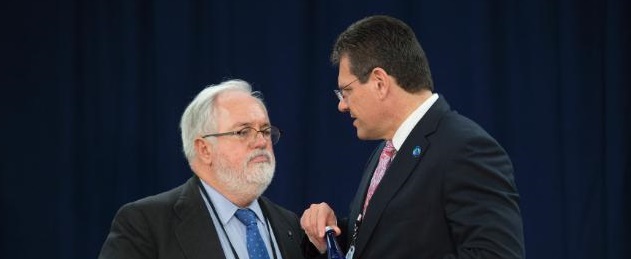EC Releases 2050 Climate-Neutral Europe 'Vision'
The European Commission (EC) has adopted a 'strategic long-term vision' for how to achieve a climate-neutral Europe by 2050.
The full paper, which was released here on November 28, was requested by EU heads of government in March 2018. The paper and related documents are also available on this EC microsite.
|
Advertisement: The National Gas Company of Trinidad and Tobago Limited (NGC) NGC’s HSSE strategy is reflective and supportive of the organisational vision to become a leader in the global energy business. |
"The purpose of this long-term strategy is not to set targets, but to create a vision and sense of direction, plan for it, and inspire as well as enable stakeholders, researchers, entrepreneurs and citizens alike to develop new and innovative industries, businesses and associated jobs," the EC said. It seeks to do so within the Paris objective of keeping global warming well below 2°C, and pursuing efforts to cap it at no more than 1.5°C. The paper, which is not a legislative proposal, is to be discussed at a special EU summit next May at Sibiu, Romania.
On energy, the paper says that power generation should be fully decarbonised by 2050, with more than 80% of the EU's electricity produced from renewable energy sources by then. It also calls for genuine process innovation in cutting industrial emissions, including more use of hydrogen, and/or the application of carbon capture and storage. In transport, it urges greater uptake of low or no-emission vehicles.
A press statement accompanying the EC paper said: "The road to a climate-neutral economy would require joint action in seven strategic areas: energy efficiency; deployment of renewables; clean, safe and connected mobility; competitive industry and circular economy; infrastructure and interconnections; bio-economy and natural carbon sinks; carbon capture and storage to address remaining emissions."
Eurogas's outgoing secretary-general Beate Raabe said November 28: “Gas fuels are necessary in all seven strategic areas identified by the European Commission: it is an efficient low-cost solution for quick decarbonisation in all areas - heating, power generation and transport - and also reduces the long-term costs of decarbonisation.” The industry group issued a position paper during a consultation exercise last month.
Release of the EC vision paper, however, comes after the EU's largest economy Germany abandoned its prior commitment earlier this year to cut the country's carbon emissions by 40% by 2020. The gas sector stepped up calls recently on Germany to achieve the same target by 2023 by shutting lignite-fired power plants; their use of polluting brown coal barely fell this year although overall German emissions have declined. Poland, Hungary and other eastern European countries are also struggling to reduce their emissions too, because of their continued heavy reliance on coal-fired generation.

Miguel Arias Canete (left) and Maros Sefcovic (right), two of the three lead EU commissioners who presented the 2050 Vision report; transport commissioner Violeta Bulc was the third (Photo credit: European Commission)




